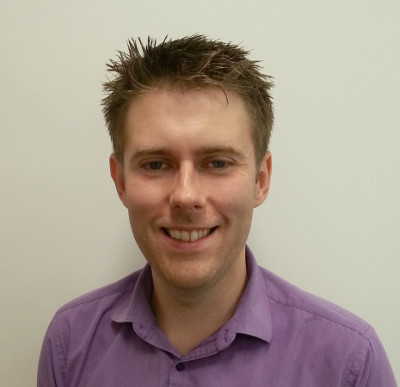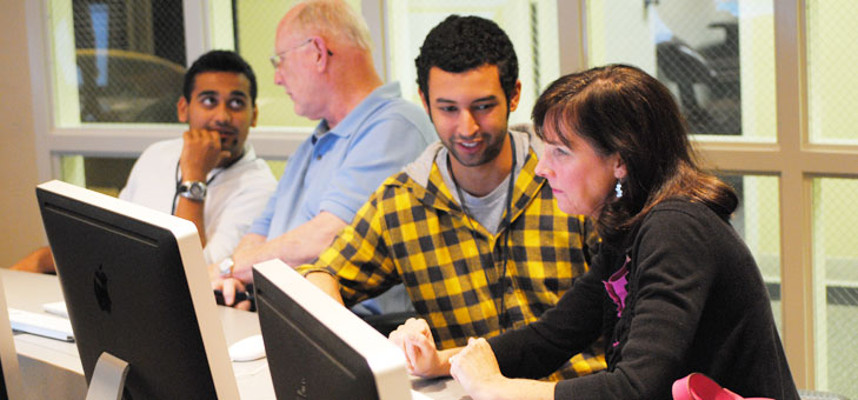
CFH Fellowships
Akul Satish
Biography:
Akul completed his PhD in cognitive psychology/neuropsychology at the University of Kent in Canterbury. His PhD work focussed on investigating whether we can actively control intrusions of unpleasant autobiographical memories using electrophysiological measures of brain activity. Akul’s fellowship at the Centre for Future Health will use similar measures of neural activity to understand how our brain forms spatial memory representations of new locations that help us successfully navigate in new environments. This research will establish foundations for understanding how this cognitive process declines in Alzheimer's Disease.
Project: How neural oscillations support the emergence of spatial representations
Our ability to navigate in new environments requires the formation of neural representations that allow us to locate ourselves in that space. Recent research indicates that these location-based representations emerge in the retrosplenial cortex, highlighting the importance of this brain region in navigating in new environments. Critically, the retrosplenial cortex is one of the first brain regions to show degeneration is Alzheimer’s Disease and one of the key behavioural deficits in Alzheimer’s patients is spatial disorientation. Understanding the neural mechanisms underpinning our ability to form location-based representations in the brain is therefore a critical theoretical question that will provide the basis for understanding degeneration in Alzheimer’s Disease.
I will investigate the temporal dynamics of how these representations are formed using high-temporal precision neuroimaging (neural oscillations). We will use a novel, recently developed, experimental approach that allows me to track the emergence of spatial representations in the human brain. For the first time, I will use magnetoencephalography to understand how neural oscillations in the healthy human brain support the learning of spatial representations that allow us to navigate. The findings will provide foundations for a larger project that involves understanding the degeneration of this neural mechanism in Alzheimer's Disease.

Kate Lindley Baron-Cohen

Biography:
Kate completed her PhD in postnatal depression and oxytocin at UCL and the Anna Freud National Centre for Children and Families. She then held a Research Associate position in child mental health joint between UCL, the Anna Freud Centre and Cambridge University. Kate’s fellowship at the Centre for Future Health will build on several novel findings from her PhD research.
Project: Postnatal depression: investigating vulnerability in new mothers and their infants
Postnatal depression affects approximately 20% of new mothers. It has high clinical importance because it causes significant distress to the woman, and in severe cases can lead to suicide. In addition, postnatal depression can disrupt the mother’s caregiving capacity which has a negative impact on early child development and increases the child’s risk of developing long-term mental health difficulties.
Using novel data collected at psychological, behavioural and biological levels, Kate’s research will test the effect of postnatal depression on three factors associated with positive caregiving and early child development outcomes: (1) the parent’s reflective capacity and drive to attribute mental states to their infant, (2) ‘synchrony’ in parent-child interaction, and (3) the hormone oxytocin. This research will deepen our understanding about how mental health vulnerability develops and is maintained in the postnatal period, and how to identify which children of women with postnatal depression are most at risk of transgenerational difficulties. The findings will have clinical implications for improving screening of risk and treatment for postnatal depression.
Boyd Brogan
Biography: Boyd trained at Oxford as a literary historian, and held teaching posts there in early modern literature, before his work on the medical contexts of Milton’s drama Comus (1634) led him to interests in medical history that now form the core of his research. He has been a Wellcome-funded postdoctoral researcher at Cambridge since 2015, working on links between sexual abstinence and illness in early modern medicine and culture.
Project: ‘The Devil's Library: gender, convulsions and demonic possession in early modern and nineteenth-century medicine’
A key finding that has emerged from Boyd’s work at Cambridge has been the close historical relationship between epilepsy and hysteria. Where modern hysteria has been viewed as a psychological condition, in the sixteenth and seventeenth centuries it was seen as a physical illness whose key symptom, as in epilepsy, was convulsive seizures. Hysteria in this period was in fact sometimes known as ‘epilepsy from the womb’.
At York, Boyd’s project will follow this story into the present, by investigating the historical moment at which the modern separation between hysteria and epilepsy first became established, in work conducted in the 1870s and 1880s by the French neurologist Jean-Martin Charcot. In particular, his project will focus on Charcot’s Bibliotheque Diabolique (‘The Devil’s Library’). This was a series of new editions of early modern accounts of demonic possession, in which new footnotes and introductions explained how supposedly possessed persons were in reality merely suffering from hysteria. These works played a key role in publicising Charcot’s new hysteria concept, which strongly influenced the development of psychoanalysis and present-day diagnoses such as conversion disorder and PTSD.
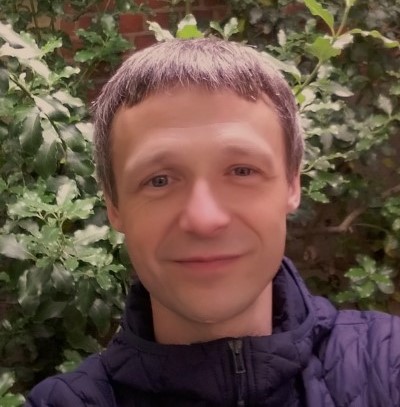
Katherine Bridge
Biography: Katherine completed a PhD at the University of Nottingham in 2013 and has most recently been working as a co-investigator on a BBSRC-funded project at Barts Cancer Institute, Queen Mary University of London.
Project: Characterisation and therapeutic targeting of novel regulators of HIF/hypoxia in myeloproliferative neoplasms
All organs and cells within our bodies require oxygen. Levels of oxygen within cells are regulated by a process called the hypoxic response. In cancer the hypoxic response is manipulated to help a cancerous cell grow beyond where and how it normally should, frequently causing cancers to become resistant to treatment and this is true for solid tumours and blood cancers alike. Myeloproliferative neoplasms (MPNs) are a type of blood cancer commonly caused by a mutation in a gene called JAK2. This project will investigate how this gene and the protein HIF (hypoxia inducible factor) which is responsible for coordinating the hypoxic response interact with the aim of identifying new treatment targets.

Laura Clark
Biography: Laura studied at the University of Edinburgh before completing a PhD in molecular microbiology at the University of Strathclyde, followed by a PDRA position at the University of Oxford. She joined the University of York in 2016 as a PDRA working on bacterial proteins and their role in infection.
Project: Understanding modulation of host immunity by staphylococcal surface proteins
Staphylococcus aureus is a Gram positive bacterial pathogen that can cause life-threatening infections which are often hard to treat with conventional front-line antimicrobials. One of the factors that contributes to staphylococcal infection is the ability of the bacterium to suppress the host immune response, allowing persistent infections to develop. This project will use molecular, immunological and computational methods to examine the role of staphylococcal cell surface proteins in modulation of host immunity, and explore whether these mechanisms are conserved in other Gram positive pathogens.
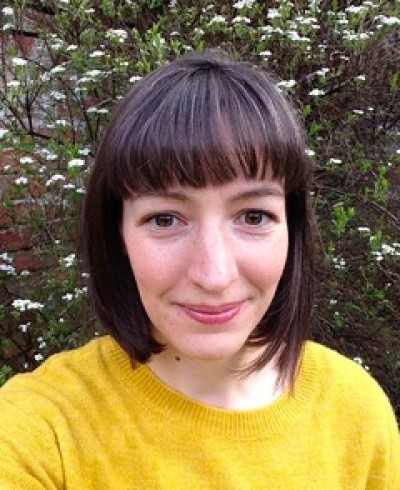
Giulia Bandinii
Biography:
Giulia graduated from the University of Padova with a degree in Pharmaceutical Biotechnology and then moved to the University of Dundee where she was awarded a PhD in Life Sciences in 2012. Since then she has continued her work on parasite glycosylation at Boston University, first as a post-doctoral associate and since 2017 as a Research Assistant Professor.
Project: Establishing Toxoplasma gondii as a model organism for the study of nucleocytosolic O-glycosylation
Cells attach sugars and other chemical groups on proteins to regulate their functionality. In both the human pathogen Toxoplasma gondii and in our own cells many proteins in the nucleus are decorated with sugars. While the sugar differs between humans (GlcNAc) and Toxoplasma (fucose), the enzymes (glycosyltransferases) that mediate the attachment are related.
The aim of this project is to understand the biological role and biochemical properties of the Toxoplasma glycosyltransferase. Biochemical assays, high-resolution microscopy and protein structural characterization will be used to shed light on fundamental aspects of parasite biology, the first step in identifying new drug targets. These experiments will also highlight the similarities with the process that modifies human proteins with GlcNAc and the molecular steps that differentiate human and parasite cells.
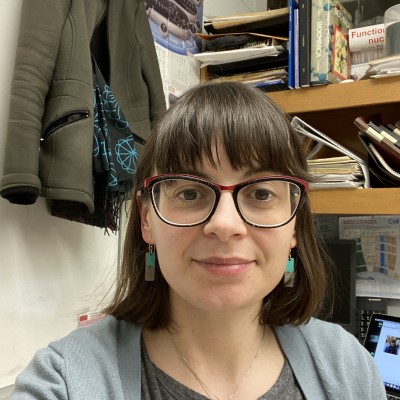
Alumni
Katie Pybus
Biography: Katie studied Psychology at Lancaster University before completing training to become a registered mental health nurse at King’s College London in 2010. After becoming interested in the social context of mental ill health during clinical practice, she completed an MSc in Social Change at the University of Manchester and received her PhD from the University of York in 2019. Following a period working as a Government Social Researcher in the Department for Work and Pensions, Katie returned to the University of York as a research fellow. Most recently, she has worked on projects relating to housing and mental health, food insecurity and the psychosocial impacts of income inequality.
Project: Personality disorder, socioeconomic factors and psychiatric hospital admissions: assessing the evidence
Psychiatric hospital admissions are upsetting and disruptive for individuals and their families. They are also costly for healthcare services compared to other forms of mental health support. Over half of people admitted to psychiatric hospitals have a diagnosis of personality disorder and research to date has focused on individual treatments. Little is known, however, about the impact of socioeconomic factors on psychiatric hospital admissions for people with this diagnosis. At the same time, there is considerable evidence that socioeconomic deprivation is linked with poorer mental and physical health.
This fellowship will explore the relationship between factors such as housing, income and social security and psychiatric inpatient admissions for people with a personality disorder diagnosis. Using evidence synthesis, epidemiological methods and an exploration of lived experiences, the research will generate evidence to identify interventions to reduce hospital admissions. It will take a collaborative approach throughout, involving people with lived experience of personality disorders alongside healthcare professionals, policy makers and academics to ensure the practical application of the evidence and to explore further research priorities.
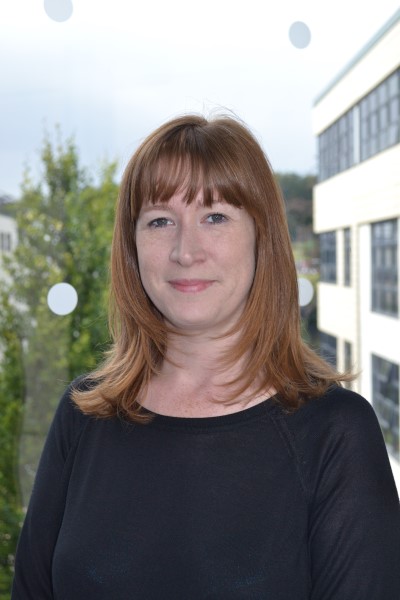
Chris Ugbode
Biography: Following an undergraduate degree and masters by research at the University of Manchester, Christopher completed an industrial CASE PhD in Neuroscience working at both the University of Reading and Pfizer’s Neuroscience Research unit in Massachusetts. In 2015, he joined the University of York as a PDRA, modelling mutations that cause frontotemporal dementia (FTD) in mammalian cells.
Project: Understanding the role of glia in frontotemporal dementia
Frontotemporal dementia (FTD) is the second most common form of dementia after Alzheimer's Disease and causes a devastating early-onset dementia, striking between 45-65 years of age. FTD has a strong genetic link, with up to 50% of cases showing a family history. Whilst neuronal death is the major hallmark of neurodegenerative disease, the glial cells, during the disease process, completely change their function in a process called gliosis. I will study genetic mutations that induce FTD but in the context of glia. The aim is to understand how glia change during disease and whether these changes influence neuronal cell death. This work will identify glial specific drug targets to help prevent neurodegeneration in FTD.
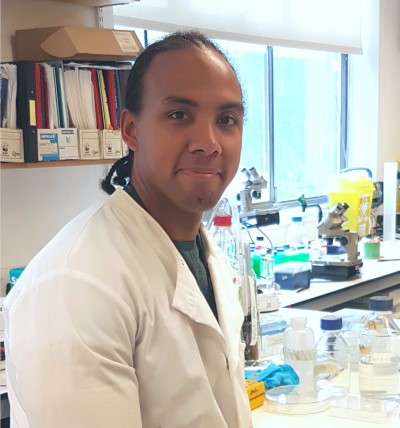
Michael Bottery
Biography: Michael has been awarded a four-year Henry Wellcome Fellowship to continue his research at the University of Manchester. Michael graduated from the University of Hull in 2010 and joined the University of York two years later where he completed a Masters by Research in 2013 and then a PhD in 2017. Following this he worked on a computational microbiology project in the University’s Centre for Immunology and Infection.
Project: Evaluating the invasion potential and diversification of Pseudomonas aeruginosa in response to the cystic fibrosis microbiome
Cystic fibrosis (CF) is a genetic disorder that leads to a build-up of sticky mucus in the lungs, allowing certain harmful bacteria to proliferate and establish persistent pulmonary infections. Pseudomonas aeruginosa is the most common of these bacteria and is the leading cause of death in CF. In order to establish an infection P. aeruginosa needs to effectively compete with the community of bacteria already present in the lung. This project will combine mathematical models with detailed microbiological experiments to test the hypothesis that a diversity of existing bacterial communities within the lung constrains the ability of P. aeruginosa to invade and become established due to niche overlap and competition. The project will also test how the nature of these communities alters the way the pathogen evolves during infection.
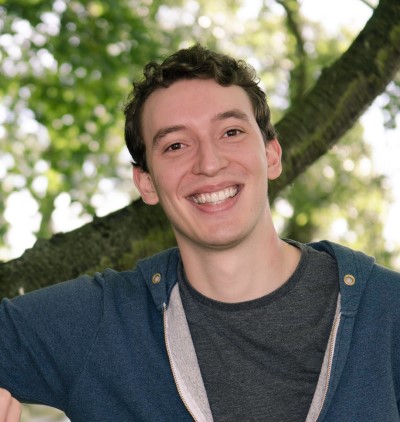
Dimitrios Kioumourtzoglou
Biography: Dimitrios studied at the University of Glasgow where he received his Bachelor of Science in 2008 and his PhD in Molecular and Cellular Biology in 2012. After a period at the University of Glasgow Dimitrios moved in 2014 to the University of York where he has been a research associate on a project aiming to improve the production of therapeutic monoclonal antibodies in mammalian cell lines.
Project: ‘Decoding insulin action: dissection of crosstalk between insulin-signalling and GLUT4-traffic’
Battling Type-2 Diabetes Mellitus (T2DM) represents one of the most major Global Health Care Challenges of the 21st century. In this debilitating disease tissues (mainly fat and muscle) that normally respond to insulin stop responding with the result that the cascade of cellular processes which clear excessive glucose from the bloodstream fail to initiate.
Many labs study the insulin-signalling pathways that occur at the start of this cascade, and many study the trafficking of a glucose transformer protein known as GLUT4 from internal stores in the cell to the cell surface (from where it enters the body’s circulation and goes on to facilitate the transport of excessive glucose into fat and muscle cells for storage) but little is known about the interface between these two processes and this is a major knowledge gap. Dimitrios will work with two internationally-recognised diabetes labs at the University of York (one in Biology, the other in Chemistry) that work respectively on insulin-signalling and GLUT4-trafficking and try to fill this knowledge gap by dissecting the signals in order to better understand how they mobilise GLUT4.
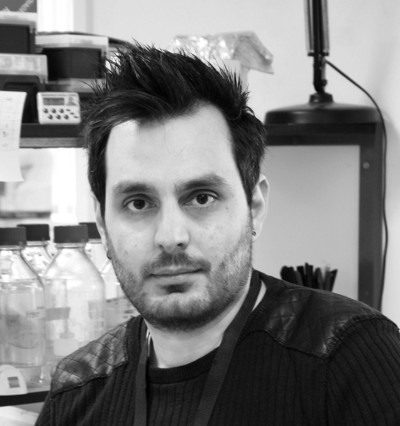
José Juan-Colás
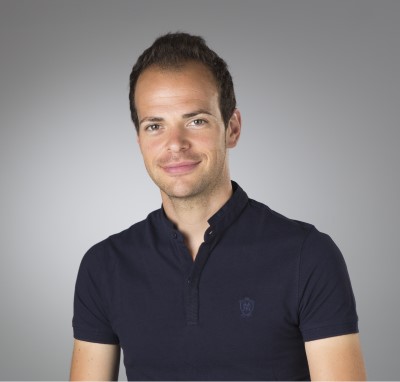
Adam Wollman
Adam has taken up a Newcastle University Track Fellowship to continue his research. He completed his undergraduate Master of Physics degree at the University of York in 2009 and went on to pursue a DPhil in Condensed Matter Physics at the University of Oxford where he developed new hybrid protein-DNA nanotechnology, harnessing natural protein machines with DNA nanostructures. In 2013 he returned to York as a Postdoctoral Research Associate with Professor Mark Leake designing and building new single-molecule microscopes and analysis software. He has used these new tools in a variety of projects spanning nanotechnology, biology and health.
Project: ‘Nanosensors to understand glucose metabolism and disease, towards biomedical application’
Glucose fuels the human body and if not regulated correctly, as in diabetes, causes serious health problems. Over 400 million people have diabetes and it is now one of the leading causes of death worldwide. Adam’s research has tried to understand these basic mechanisms using yeast cells as a model organism and imaging them with a novel fluorescence microscope, which he designed and built, and is capable of imaging the individual protein molecules that sense and respond to glucose.
To better understand glucose metabolism, Adam proposes to develop a new glucose nanosensor which can enter the cell and measure, for the first time, the amount of glucose taken up by a living cell. This sensor technology could also have a more direct clinical application as the greater sensitivity would allow glucose monitoring from saliva, sweat or tears rather than the current more invasive blood sampling that is required.
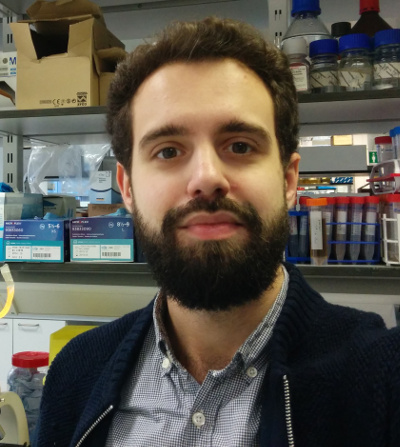
Rebecca Wright
Rebecca has been appointed as a Lecturer in American History at Northumbria University. Before commencing her Fellowships at York she was a Research Fellow in Mass Observation Studies at the University of Sussex, where she is examining energy practices in the Mass Observation Archive. Between 2013-2016 she was a Research Fellow on the AHRC collaborative project, "Material Cultures of Energy" at Birkbeck College, where she worked on ‘Energy Futures’. She completed her PhD at Birkbeck College in 2015, and has held fellowships at the Library of Congress in Washington D.C., and the Huntington Library in California.
Project: ‘Powering Health: Energy and Wellbeing in the US and UK, 1900-1970’
Throughout the twentieth century energy systems and understandings of health and wellbeing have impacted on each other. Despite this interdependence, the history of energy remains a neglected subject within the medical humanities, and the history of medicine rarely features in histories of energy. By comparing the ways energy, health and wellbeing evolved in the US and the UK between 1900 and 1970 this project sought to address this disciplinary divide. The study asked how new models of health, hygiene and wellbeing impacted upon industry and upon governments’ attempts to manage demand across energy systems and national energy policies. It also asked how different energy sectors benefited from, and promoted, new health models to expand systems, build competitive advantage, and fix demand. The project examined a range of factors which shaped energy and health environments from the particularity of the energy mix to broader cultural, political and geographical considerations and in doing so strove to advance public and policy awareness of the intersections between energy, human health and the environment.
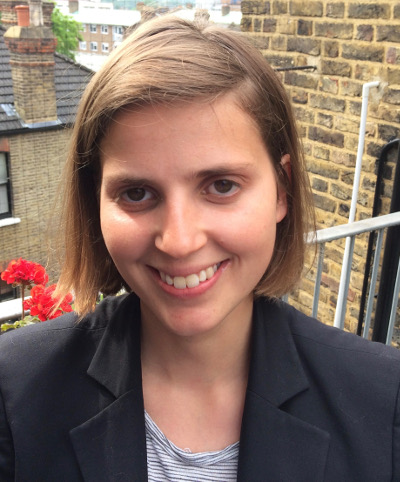
Andrew Gibson
Andrew has taken up a Junior Professorship at Ruhr University Bochum but is maintaining close ties with the University of York. He received his MSci degree in Physics and Medical Applications from Queen’s University Belfast in 2011 and his PhD in Physics from the same university in 2015. Since then he has undertaken post-doctoral roles at the University of York and Ecole Polytechnique, France. During this time, his work has focused on computational simulations and experimental diagnostics of low-temperature plasmas with respect to their applications in industry and biomedicine.
Project: ‘Accelerating low temperature plasmas towards clinical prostate cancer therapy through computer-aided design’
Due to their ability to produce a unique myriad of biologically active reactive oxygen and nitrogen species (RONS) low temperature plasmas (LTPs) have been proposed as a cancer therapy of the future. Poor treatment outcomes associated with current prostate cancer therapies make this cancer a prime target for such a novel approach. Through his Centre for Future Health Fellowship Andrew has been applying computational techniques from the field of plasma physics to study the biochemical interactions between low-temperature plasmas and prostate cancer cells. This approach will be used to overcome key challenges in understanding these complex systems and accelerate the development of low-temperature plasmas towards clinical applications in prostate cancer therapy.
